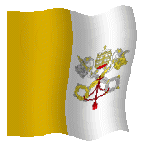Fr Guy Selvester makes an excellent point in his latest posting on his erudite blog, Shouts in the Piazza.
In the context of the US mid-term elections, Fr Selvester is ruminating about the importance of each and every vote; he suggests - correctly - that “decisions are made by people who show up.”
To support the argument that he is making, Fr Selvester states that “President Hayes was elected by one vote” and adds that “In a most dramatic example, Hitler took democratic control of the Nazi Party in 1923...by just one vote.”
While supporting the veracity of the points he makes, I’m not too sure that the two examples Fr Selvester uses are the most appropriate ones that he could have chosen.
Rutherford B Hayes did indeed win the 1876 Presidential Election by one vote; however it was one Electoral College vote and not one popularly cast ballot, which is a very different thing. Indeed to further undermine Fr Selvester’s argument I might add that Hayes’ Democratic opponent, Samuel J Tilden, received about 250,000 more popularly cast votes than Hayes. As a result Hayes became known as “Rutherfraud”!
So, a quarter of a million more people showed up for Tilden than for Hayes, but their votes didn’t count.
On 26 July 1921 Hitler was appointed Chairman of the National Socialist German Workers’ Party. This appointment was not the result of a democratic vote, or indeed any vote. Instead it was a panicked reaction of the Party’s existing leadership to Hitler’s petulant resignation from the Party over its refusal to listen to his opposition to a planned merger with the DSP. Fearing that the Party would collapse without the influence of its most gifted member, the leadership capitulated and gave in to his demand to be appointed Chairman with dictatorial powers.
I’m not too sure if there were very many votes within the Nazi Party that could be described, even loosely, as “democratic”.
Monday, November 06, 2006
Subscribe to:
Post Comments (Atom)




No comments:
Post a Comment